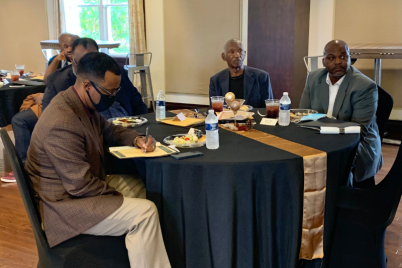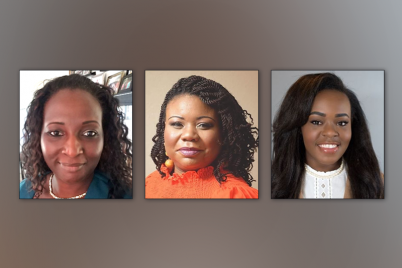By Dr. Brittany Peters, LCSW, MCAP, QS
There are many discussions about who is considered an essential worker and who is not. This pandemic has raised concerns, not only related to health and well-being but also to the economic impact of being deemed nonessential, especially for African Americans and other minorities.
While the economic impact of the COVID-19 pandemic is important, another hidden layer of the current environment is the psychological impact of internalizing the label of nonessential. In terms of mental health, negative thoughts and perceptions of self, others, and the world around you can contribute to an increase in depressive symptoms. To internalize a thought, attitude, or perception is to begin accepting it as true. For minorities, we see this play out through stereotypes regarding our culture and discrimination. As Christopher Wallace, aka The Notorious B.I.G., once said, “stereotypes of a black male misunderstood/but it’s still all good.”
Although we can be consciously aware of the negative stereotypes and resulting discrimination against us, we may unconsciously begin to accept those views as true, and our behavior becomes a manifestation of that unconscious acceptance.
In 1962 Malcolm X posed the question to us like this:
Who taught you to hate the color of your skin? Who taught you to hate the texture of your hair? Who taught you to hate the shape of your nose and the shape of your lips? Who taught you to hate yourself from the top of your head to the soles of your feet? Who taught you to hate your own kind? Who taught you to hate the race that you belong to so much so that you don’t want to be around each other?
In therapy, we clinicians use many different techniques, skills, and interventions to help individuals identify negative thought processes and challenge and change them. This is a cognitive behavioral approach, meaning our thoughts are connected to our behavior. Therefore, if you have been feeling nonessential either recently or for all your life, I encourage you to ask yourself the following questions:
- What are the nonessential thoughts I hold about myself?
- Who told me that I was not essential? (Consider the source.)
- What is the evidence for and against these beliefs I hold?
- Are there alternative ways to look at this evidence?
- What do my positive supports, God, and those I value say about me?
- Is there a positive thought I can use to move forward, acknowledging my value and that I am essential?
You may also consider journaling your answers to these questions. I journal myself and find it effective. I encourage you to connect with your support network and discuss these questions, as a healthy support system can help you challenge these thoughts. Therapy can also help. Sometimes these thoughts, perceptions, and beliefs have been held for so long that we need a little extra help. Like getting your nails done or that weekly fade, therapy is an investment in yourself. After all, you too are essential, “and if you don’t know, now you know.”
About the author:
Dr. Brittany Peters has over 13 years of experience in community mental health as a clinician, advocate, consultant, and clinical director. As licensed clinical social worker, certified in addictions, and a qualified supervisor, Dr. Brittany devotes much of her time to improving clinical services in the community through the training and development of counselors and other professionals.
She owns and operates a private practice, Center for Wellness & Clinical Development and teaches collegiate courses for two major universities.
Continuing her belief in civic engagement, she volunteers her time though the Urban League Young Professionals, The Well for Life, League of Women Voters, and the Tampa Bay Unit of the National Association of Social workers.









